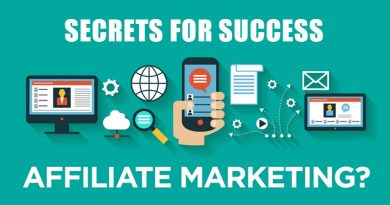Entrepreneurial Debts – Understanding the Truth About Business Debts
Are you a start-up entrepreneur? If yes, you must have heard other entrepreneurs and business owners, speak about good and bad debt.
However, that’s entirely false! Anyone who has known the pros and cons of debt will agree that there’s nothing called good debt. That doesn’t imply that you’ll never find a good time for borrowing money.
The real problem is arriving at the correct understanding of business debt. And the moment you have a better understanding of this issue, you get clarity. That, in turn, will help you perform better as an entrepreneur.
The way the incorrect understanding of debt misleads us
Many people consider borrowing money for business investments as something risky! Borrowing might be a necessary evil, as it results in liability.
And gradually this debt results in extra guilt and tension on the part of the entrepreneur. He/she has the urgency to repay back the borrowed amount.
And just in case the business for which an entrepreneur has borrowed money isn’t picking up speed and making profits or covering the necessary cost of operation, it becomes tough to concentrate on other business aspects.
This misleading understanding of a business debt has been passed on for years!
The finance consultants and gurus in books, radio or TV always have been sharing with people ways not to borrow capital at all. Some financial experts suggest paying for your residence up front in cash.
It’s something that even Mark Zuckerberg, a billionaire didn’t abide.
The finance experts are right about averting debt. Simultaneously, their understanding of borrowing money for buying a residence doesn’t make anyone gets caught up in debt.
It’s true that mortgage is accountability. However, you have taken responsibility for an asset that you can’t do away with now.
Also, if the residence costs more than the mortgage, that’s likely to be the situation after you’ve made the down payment, you have “equity.” It is the total opposite of debt.

Understanding the real definition of debt
Simply put, debt is not about owing capital. Instead, it is all about what you owe more than what you own.
Speaking regarding accounting, we are in debt when our assets are less than the liabilities.
So, most of us want to steer clear of a mortgage, yet the majority don’t do anything to avert acquiring responsibilities, which might be advantageous to our value creation prosperity and productivity.
Instead, in some situations, the method to maximize wealth and prosperity is to increase, not minimize the liabilities.
Want to learn more about this? If yes, you can browse online and read through websites and others, to gather a better idea.
However, there’s a catch here with you not wanting to borrow money at all. All liabilities aren’t equal. For instance, if you don’t have the financial capacity to launch a new product, but do it depending on credit, you are generating what’s called consumptive liability.
You are gradually incurring increased debt. And this negatively affects your productivity. It’s because when any liability doesn’t add to your financial cash-flow, it is best to avert it at all costs.
Here most financial experts and agencies suggest that concept of business or entrepreneur debt consolidation loan to minimize liabilities soon.
Here the entire debt amount is consolidated into one huge amount that entrepreneurs can keep clearing by regular monthly payments.
It reduces liabilities from many channels, into one. The entrepreneur is required to pay off that amount monthly under a low-interest rate.
The concept of productive liabilities
Financial experts suggest getting as much as productive liabilities as possible. Simply because, going by its definition, it always makes you affluent than what you were before.
Wondering what could be few instances of productive liabilities? It comprises of small-business loans, collateralize business loans, education loans and also a line of credit for your business. The other example for entrepreneurs is the payroll.
Each month an entrepreneur may owe the staff one or more paycheck. However, because your working staffs maximize the cash flow, it is a favorable deal. And it is one of the best productive liabilities.
Can a mortgage be identified as a productive liability?
It could be that you’ve borrowed capital for your business development activities, regarding purchasing office space.
And your new business might take some time to pace up and add to the cash flow. So, does that indicate it isn’t a productive liability? Before you make plans to sell off a fraction of your business to get more money, you need to know that a private mortgage can become a productive liability.
If borrowing some capital to pay off for your business expansion free more money for investing it somewhere else, which also generates increased cash flow; it’s a productive liability then.
It is the same reason why the billionaire, Mark Zuckerberg had incurred a mortgage for 30 years by having a 1.05% interest rate.
In such a low-interest rate, paying the mortgage or in cash, at the earliest might seem to be an irresponsible act.
On second thoughts, there could be several other avenues where he could place the capital and also earned more than the 1%.
Using your precise understanding of debt to transform it into wealth
Personal finance experts often encourage entrepreneurs to get or stay out of debt, as quickly as possible! This practice honestly distracts you from what should matter. If you understand it all well, debt is unfavorable.
However, liabilities are crucial for generating wealth. Hence, it’s wise and smart to conclude that it’s not essential to pay out your mortgage at the earliest, just in case your money can be used efficiently somewhere else.
And this will also not make entrepreneurs feel tensed and guilty about borrowing capital for business expansion. It’s perfect to leverage loans for investments in your field of expertise. Hence, it’s not correct to approach your entrepreneurial journey with an old and limited idea about debt.
It’s essential that you understand its real implications. It will help you to plan better for your business.




